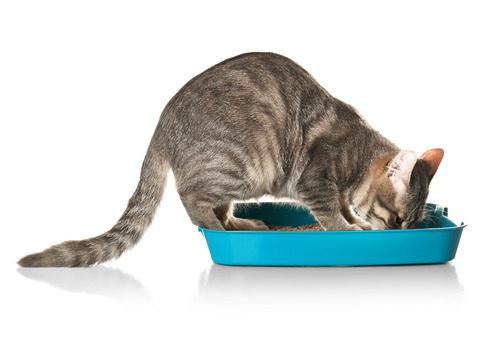Cat Spraying vs Peeing: What Does Cat Spray Smell Like?

Cat owners often struggle to determine whether their feline is spraying or simply urinating outside the litter box. While both behaviors involve urine, their meanings and underlying causes are vastly different. Spraying is a form of marking territory, commonly exhibited by unneutered males, though females and neutered cats may also engage in this behavior. Regular urination, on the other hand, is part of a cat’s natural elimination process. The most significant distinction between the two lies in the smell and placement of the urine.
If you’ve ever wondered, what does cat spray smell like?, the answer is often strong, musky, and far more pungent than typical urine. This blog will explore the unique odor of cat spray, why cats engage in this behavior, and what pet owners can do to manage it effectively.
What Does Cat Spray Smell Like?
Cat spray has a distinct and overwhelming odor that is different from regular urine. If your cat has been spraying, you may notice an ammonia-like scent combined with a strong, musky undertone. This smell lingers much longer than typical urine and can be challenging to eliminate completely. The intensity of cat spray is due to the pheromones present in the urine. These pheromones are a form of chemical communication that cats use to mark their territory, attract mates, or signal stress.
Unlike standard urination, which is mostly water and waste byproducts, cat spray contains a higher concentration of pheromones, fatty acids, and other compounds that make the smell more potent. If the scent is left untreated, it can seep into furniture, carpets, and walls, creating a persistent and unpleasant odor in your home.
Why Do Cats Spray?
Understanding why cats spray can help pet owners address the issue more effectively. Spraying is a natural behavior rooted in communication, and it can be triggered by several factors:
Marking Territory
Cats use their spray to claim an area as their own, particularly when they feel their space is being invaded. This is common in multi-cat households, where competition for space and resources may lead to marking behavior.
Mating Behavior
Unneutered male cats spray to signal their availability to females. The strong, musky scent is meant to attract potential mates. Female cats may also spray while in heat to communicate with nearby males.
Stress or Anxiety
Changes in a cat’s environment—such as a new pet, a move, or a change in routine—can trigger stress-related spraying. Cats use their scent to create a sense of familiarity and security in their surroundings.
Medical Issues
While spraying is often behavioral, certain medical conditions like urinary tract infections (UTIs) or bladder stones can cause cats to urinate outside the litter box. If you suspect a health issue, consulting with your veterinarian is essential. Call Yalesville Veterinary Hospital at (203) 265-1646 or book an appointment online today.
How to Differentiate Spraying from Peeing
Distinguishing between spraying and peeing is crucial for addressing the behavior appropriately. While both involve urine, the way the cat eliminates provides clear clues:
- Spraying: A cat typically backs up to a vertical surface (such as a wall, door, or furniture), raises its tail, and releases a small amount of urine in a fine spray. The tail often quivers during this process.
- Peeing: A cat squats low to the ground and releases a larger volume of urine, usually in a puddle. This is the standard elimination method for urination.
How to Reduce or Prevent Cat Spraying
Once you’ve identified that your cat is spraying, there are several steps you can take to address the issue. While some behaviors are instinctual, managing stress, improving the environment, and medical intervention can help reduce or eliminate spraying.
Neutering or Spaying Your Cat
One of the most effective ways to prevent spraying is to have your cat spayed or neutered. This significantly reduces hormone-driven spraying, especially in male cats. Many cats stop spraying entirely within weeks of the procedure.
Reducing Stress and Anxiety
If stress is causing your cat to spray, providing a calm and enriched environment can help. Consider the following strategies:
- Maintain a consistent daily routine.
- Provide multiple litter boxes in different areas of your home.
- Ensure each cat in a multi-cat household has its own food, water, and resting areas.
- Use feline pheromone diffusers, such as Feliway, to create a calming atmosphere.
Thoroughly Cleaning Affected Areas
If your cat has already sprayed, it’s essential to clean the area thoroughly to remove the scent. Cats may continue spraying if they detect their previous markings. Use enzymatic cleaners specifically designed for pet urine to break down the odor rather than just masking it.
Providing Vertical Space and Enrichment
Cats feel more secure when they have designated areas where they can climb, perch, and observe their surroundings. Cat trees, wall shelves, and window perches can help reduce stress and territorial disputes, leading to less spraying behavior.
Consulting Your Veterinarian
If your cat continues to spray despite environmental and behavioral modifications, speaking with your veterinarian can help rule out underlying medical concerns. The team at Yalesville Veterinary Hospital can provide expert advice and treatment options to help manage the behavior. Contact us today to discuss your cat’s needs.
Addressing Cat Spraying for a Cleaner Home
Cat spraying can be a frustrating problem, but understanding why it happens and how to manage it can make a significant difference. Identifying the distinct smell of cat spray, recognizing the triggers, and implementing strategies to reduce stress and territorial marking can help maintain a clean and comfortable living space for both you and your cat. If your cat is frequently spraying and you need expert guidance, contact Yalesville Veterinary Hospital at (203) 265-1646 or book an appointment online today.
